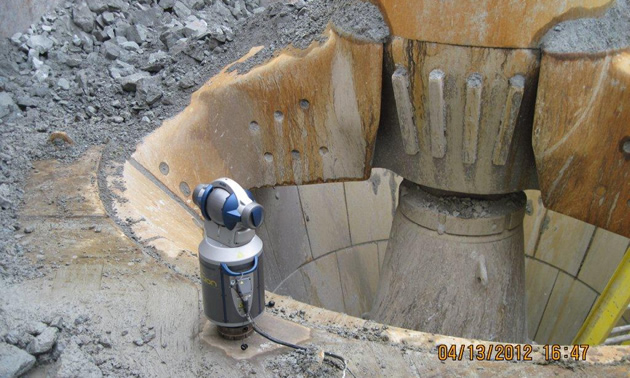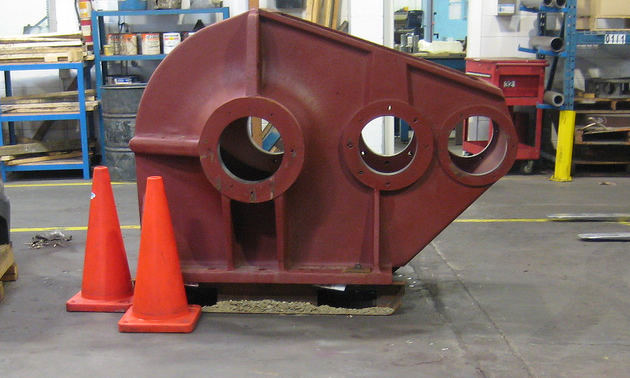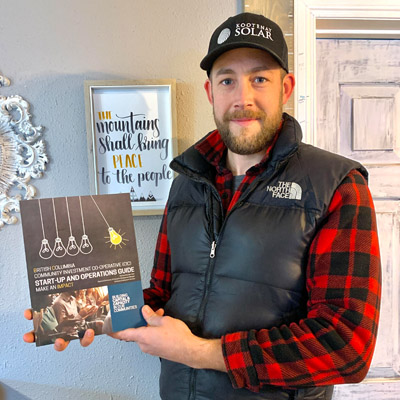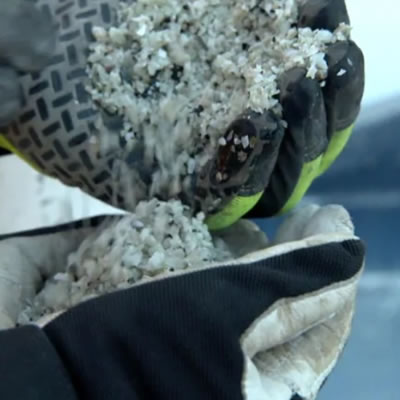Technology for measuring just about anything
Portable co-ordinate measuring equipment is perfect for mining applications
After selling co-ordinate measuring machines for three years, Warren Wagstaff realized most larger companies would rather hire an expert to complete the work.
“I saw a gap in the market and decided to fill it,” said Wagstaff. “Today Digital Precision Metrology has amassed many clients and I’ve turned my focus on the growing mining sector.”
The company has filled a niche with an array of services, including reverse engineering, inspection of large parts, three-dimensional plant layout, crane rail mapping and drift surveying.
“In the mining industry I’ve done work from bail dipper line boring set-ups and gear box and gear inspection to reverse engineering trunnion bearing pedestals and wear plate analysis,” he said. “Typically, I come in for a specific job or task and when people see what I do the scope of my work on site expands.”
Wagstaff uses a laser tracker—it resembles R2-D2 and shoots a laser out of the eye—which is controlled by a target that it follows and uses to collect data. It is essentially a portable co-ordinate measuring machine with an accuracy of 0.0004 inches over 24 feet, but it can span up to 320 feet in a single shot. From the data gathered just about anything can be extracted, as well as a whole gamut of geometric dimensioning and tolerancing call-outs.
“Polyworks, the software package I use, allows me to capture and extract anything I need,” said Wagstaff. “I can do a full analysis within Polyworks or dump the data into Excel or into any CAD package for analysis, should the customer require.”
Why it works for mining
The technology is popular in high-tech industries like automotive, aerospace and defence, and has also taken root in production industries like marine, oil and gas, mining in mills, mobile maintenance and pits.
“I initially thought mobile maintenance in the mines would be the perfect fit, and not that it isn’t,” said Wagstaff, “but some of my customers have asked me to measure some difficult parts and machines. I guess I have to see it from their point of view and what they want to accomplish, which makes every day different and every call challenging—it keeps me on my toes.”
Digital Precision is based out of the Lower Mainland, but has worked as far north as the oil sands and Fort MacKay and to southerly destinations including Alabama. Wagstaff studied wood product processing at UBC, where he also earned a project management certificate. After eight years in the forest industry he turned to selling portable CCMs, and the rest is history.
With completely portable equipment, Wagstaff can work almost anywhere, from the inside of shovels for gear alignment to the machine shop.
“I can mag-mount the laser tracker to the lip of an in-pit crusher, or reverse engineer a bearing pedestal in a mill,” he said. “If it’s out there, I can capture it and measure it. I’ve even been asked to measure volumes of material removed from a wall, which can certainly be done, but I’m still waiting for the call on that one.”
Currently about 32 per cent of Digital Precision’s work is in the mining industry, and Wagstaff is aiming to make it 50 per cent.
“Since I’m new to the mining industry, just getting into the different sites is the challenge I’m facing,” he said. “Once people see what I can do and the results that they can get, the minds start going and they realize the usefulness of my services.”








